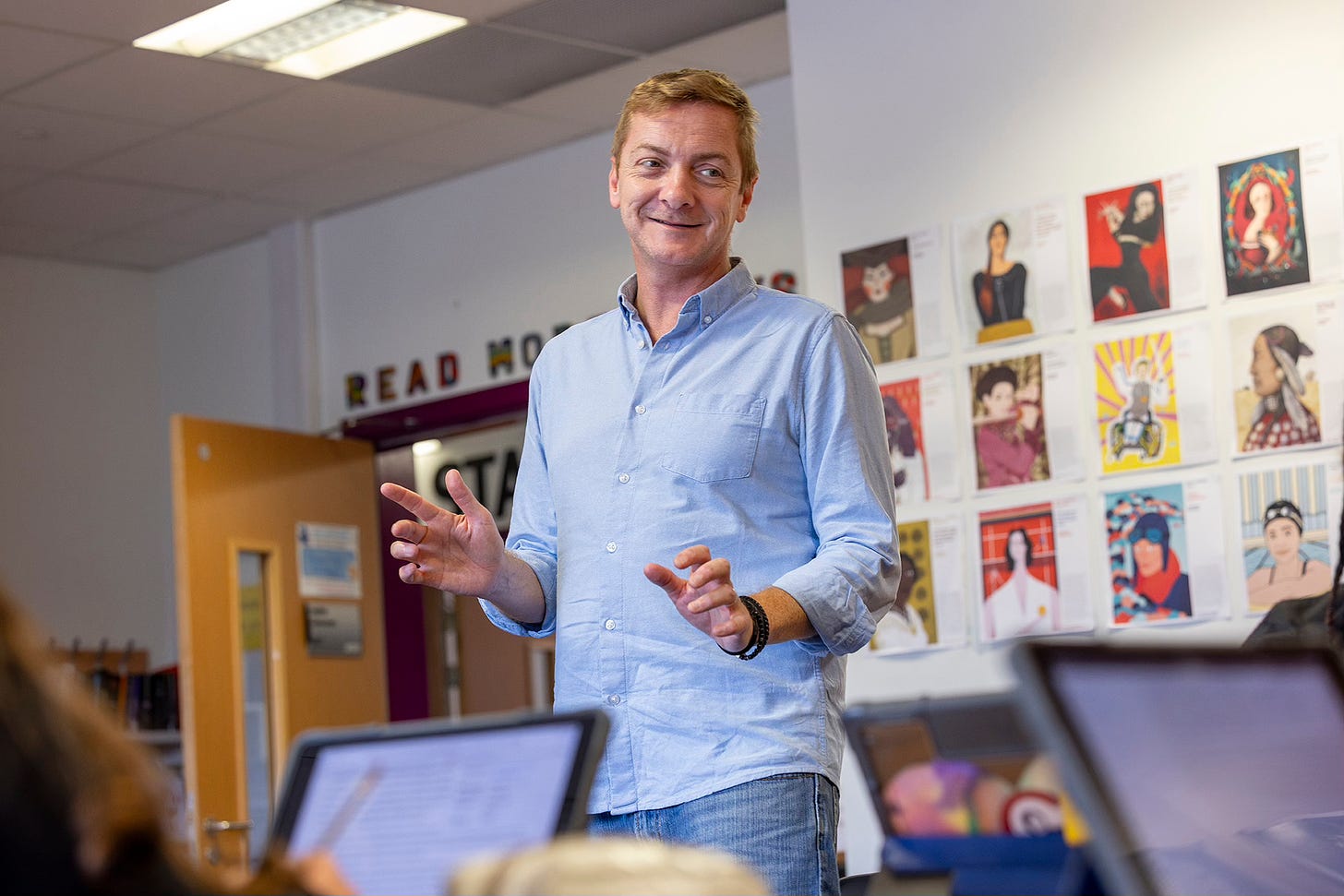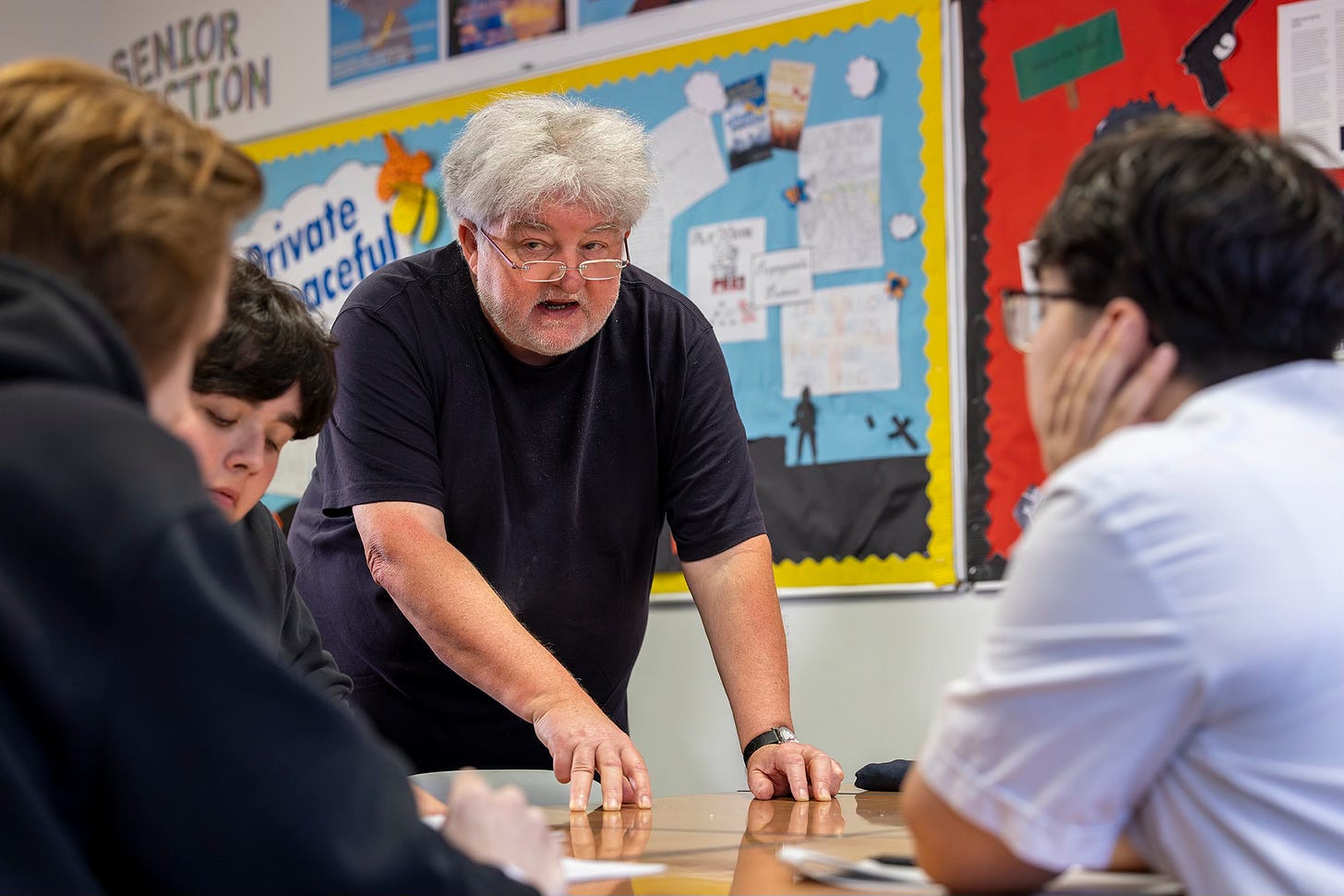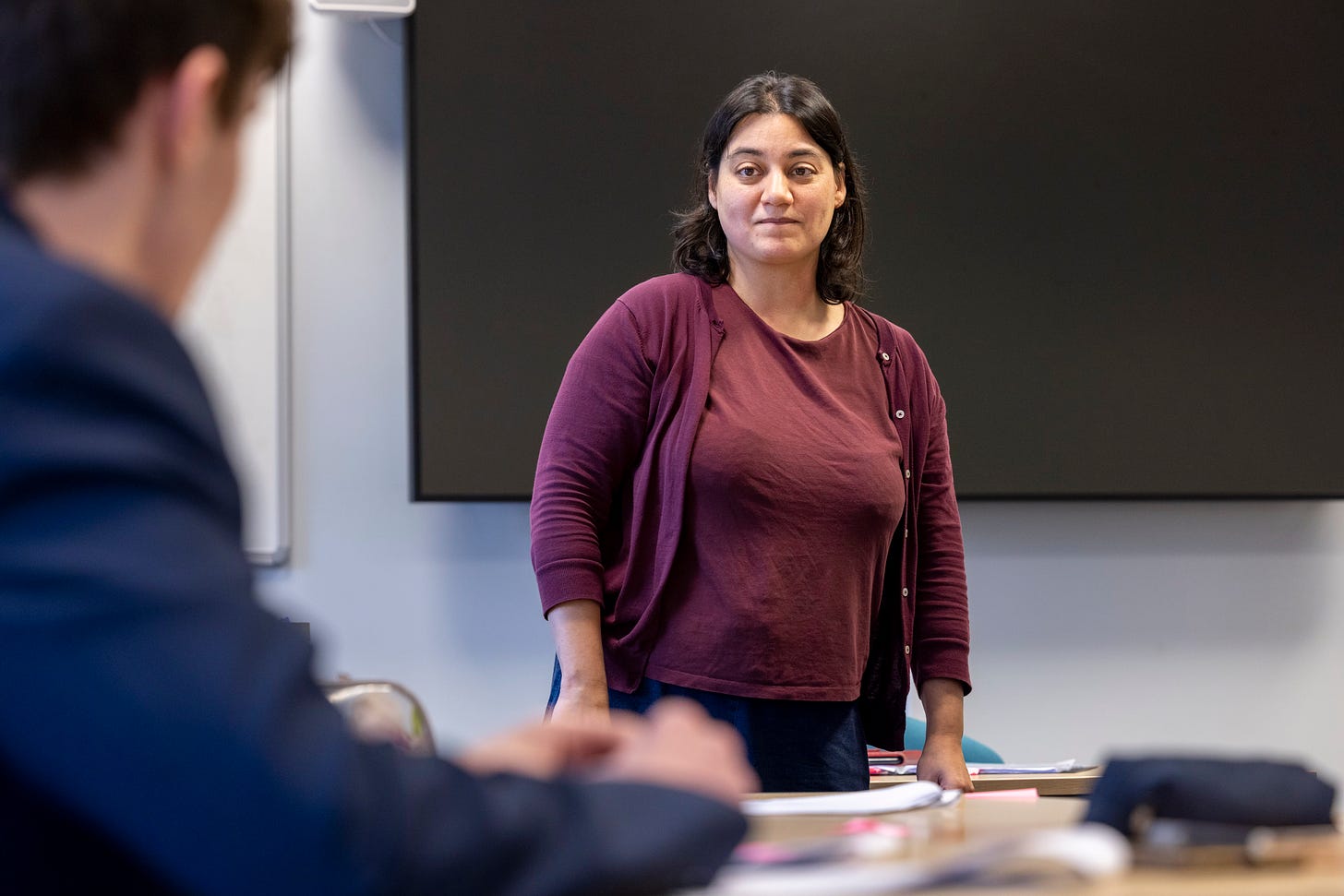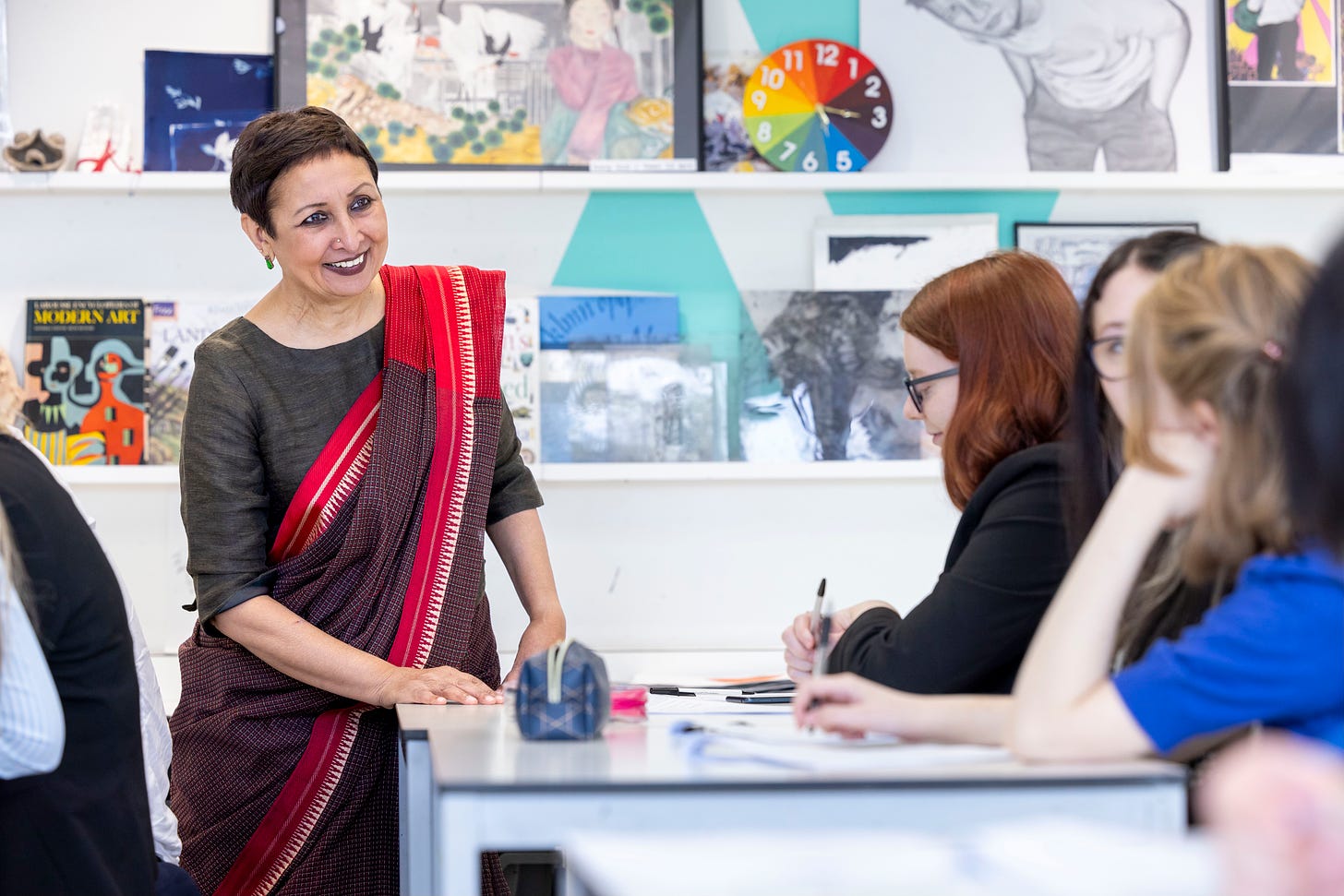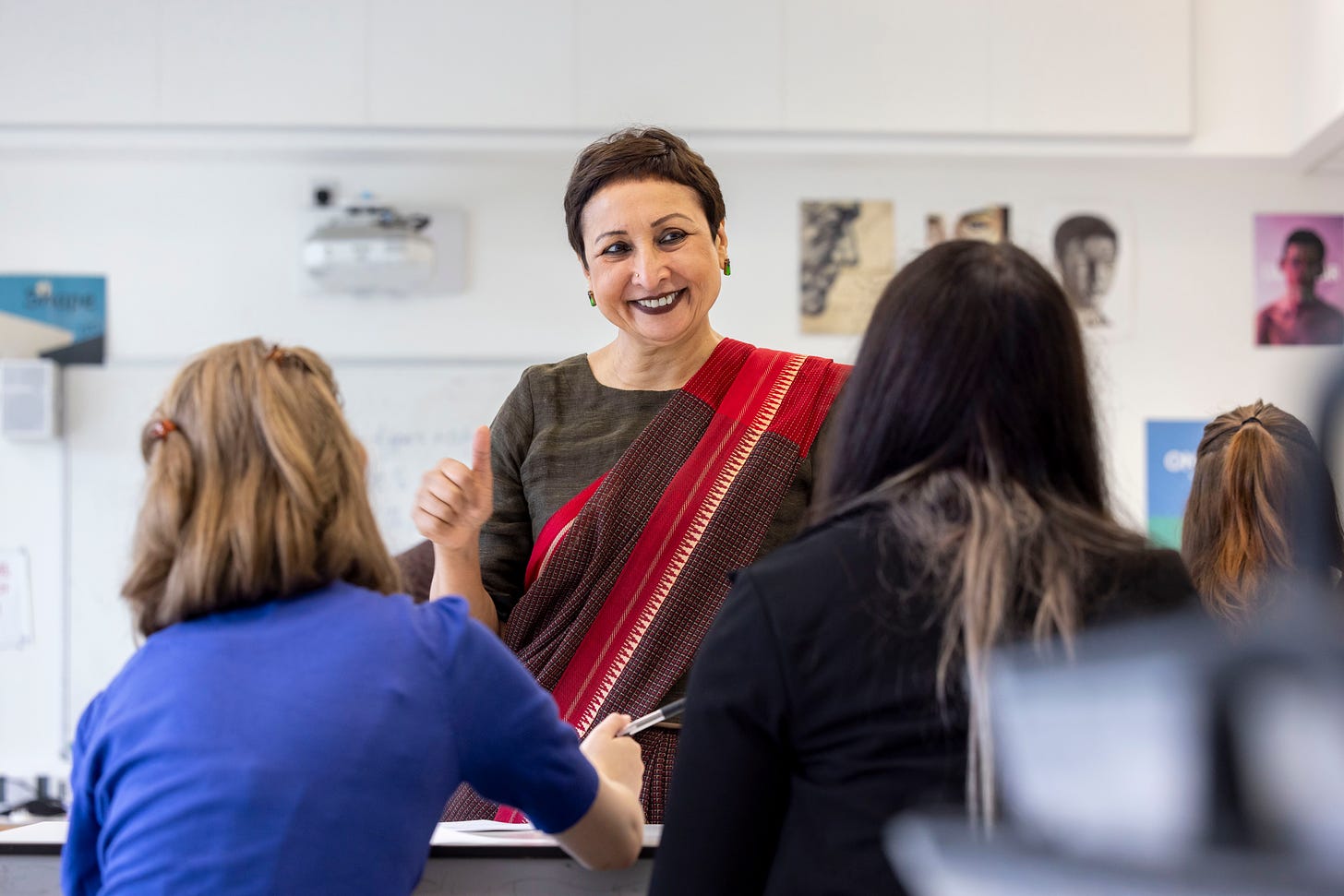Why we are in the transformation business - Bridge, our school workshops programme
"Our idea was to ‘bridge’ the writing gap between school and university.”
“We’re in the transformation business,” says RLF Fellow and poet Donny O’Rourke. “The ultimate transferable skill that we teach is communication.”
Donny is one of several RLF Fellows who teaches on the Bridge programme, a workshop given by writers to senior school students aged 16 - 18 in hundreds of schools nationwide.
The Bridge was originally conceived by Consultant Fellow, Katie Grant, who put together the materials for the workshop, which consists of 4 sessions plus the toolkit for Bridge participants. Her idea was to ‘bridge’ the writing gap between school and university.
“It really is a bridge,” says Donny. “The workshops are designed to get you to university or higher education, but it’s not just a bridge from school to university; it’s a bridge from where you are now to the person you’re capable of being.”
“The Bridge locates writing right in the middle of people’s lives.” Donny O’Rourke
The workshops cover writing skills such as paragraph plans, critical thinking and editing. RLF Fellow and crime and science fiction writer Doug Johnstone says, “There is one specific moment I love. I get one of the pupils to read out an example of bad academic writing, and they love it because it’s awful. But it still sounds, to their ears, academic. Part of what we’re doing is making them realise that they don’t have to use flowery language, big words, and long sentences - that is not good communication. We need to write concisely. You can almost see the light bulbs going on over their heads.”
Doug often quotes the novelist and essayist 1George Orwell:
“Good prose should be transparent, like a window pane.”
“I keep reinforcing the idea that you’re looking through the clear prose to the ideas underneath; extra words cloud the meaning,” says Doug. One of the students doing Bridge workshops at the University of Birmingham School found this focus on clarity helpful: “The best piece of advice given to me was to be clear in what you want to write; not everyone understands what you’re trying to express, so clarity is really important.”
“The first Bridge session was unexpected because I went into it with a closed mind - I think my writing skills are up there. Now I know that everyone has room to improve.”
Student at the University of Birmingham School
The Bridge workshops are useful - and necessary right now - because the curriculum is knowledge and content-heavy, according to Rebecca Tigue, Director of Training at the University of Birmingham School. “Writing is often overlooked,” she says. “The writing almost becomes a mechanism for sharing knowledge, rather than something in its own right taught as a craft.” RLF Fellow Leila Rasheed, who is a children’s and YA author, agrees: “There’s so much content to get through that it’s difficult to find space in the school year to talk about writing. The Bridge gives us that word.”
The writing skills covered don’t just give the students the ability to write well academically, Donny argues: “When I’m working with young people I want to locate their academic writing on a continuum, a continuum that involves tweets, that involves Facebook, that involves conversation. I try to convince them that, in a sense, it’s all writing. Artificially trying to hive off writing as something only scholars and academics can do isn’t helpful; the Bridge programme locates writing right in the middle of people’s lives.”
“Will the students deepen and broaden my humanity? I can guarantee they will do that within ten seconds of the session beginning.” Donny O’Rourke
According to both teachers and students, working with professional writers doesn’t just help with writing. English teacher Rachel Alexander at Tynecastle High School says, “The Bridge sessions have helped to contribute something that is often undervalued, which is confidence. All the students in this class are good writers, but they all need a boost to their confidence.” Her students agree; one of the participants says: “Writing is a lot less intimidating now. A lot of the exercises gave us more confidence in our writing.”
“I went into the Bridge workshop thinking it was going to be a boring old lecture, but it turned out to be insightful and creative; some of the ideas were so simple but so deep.”
Student at the University School of Birmingham
The strength of Bridge is not just in its structure and content but in its delivery by professional writers. Rachel says, “There’s a gravitas in being given tips by real writers that is much more exciting and seems more ‘industry level’ and ‘in the know’ than when it’s your class teacher.”
It is also beneficial for the writers, partly because the RLF supports them and their writing by paying them to teach the Bridge workshops. It also enables writers to tap into skills they often use unconsciously but need to evaluate to help the students.
RLF Fellow and novelist Dr Vayu Naidu says, “I think it’s excellent selfishly for one’s own writing because you really have to look at structure, logic, reasoned argument. Many of us Fellows wish we had this education tool when we started out.”
RLF Fellow and children’s fiction writer Amanda Swift says, “It’s very rewarding; you feel as if you are changing people’s lives just a little bit.” The exchange, though, goes both ways, as Donny points out. “The Brazilian educator, Paolo Freire, wrote, ‘Whoever teaches learns in the act of teaching, and whoever learns teaches in the act of learning.’ Are the students going to teach me how to write a better essay? Probably not. Will they deepen and broaden my humanity? I can guarantee they will do that within ten seconds of the session beginning.”
If you would like to learn more about our Bridge programme for schools, visit our website www.rlf.org.uk
Our Consultant Fellows, who lead academic writing workshops for university students and staff, have a blog with tips for better academic writing – which you can find it here, including one on writing more clearly as George Orwell originally described.





